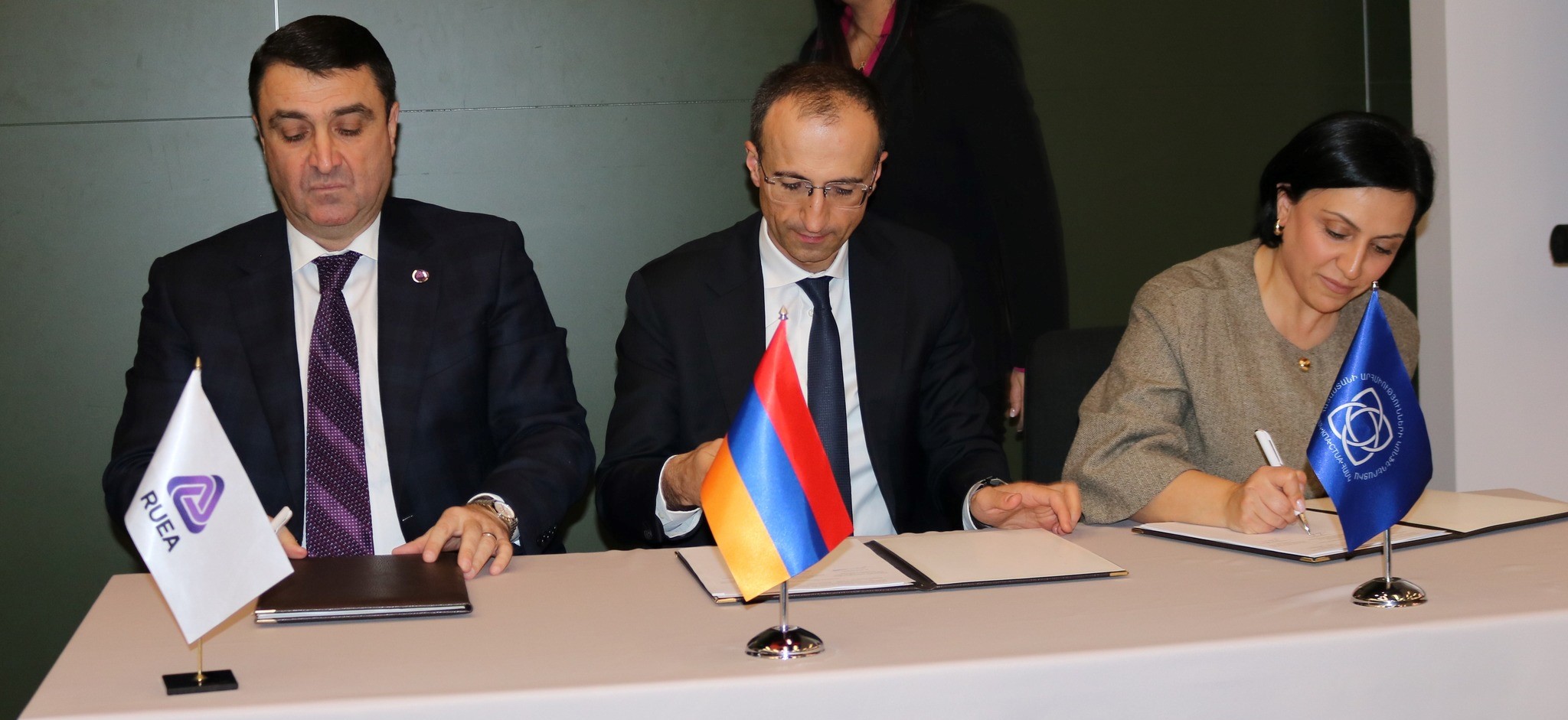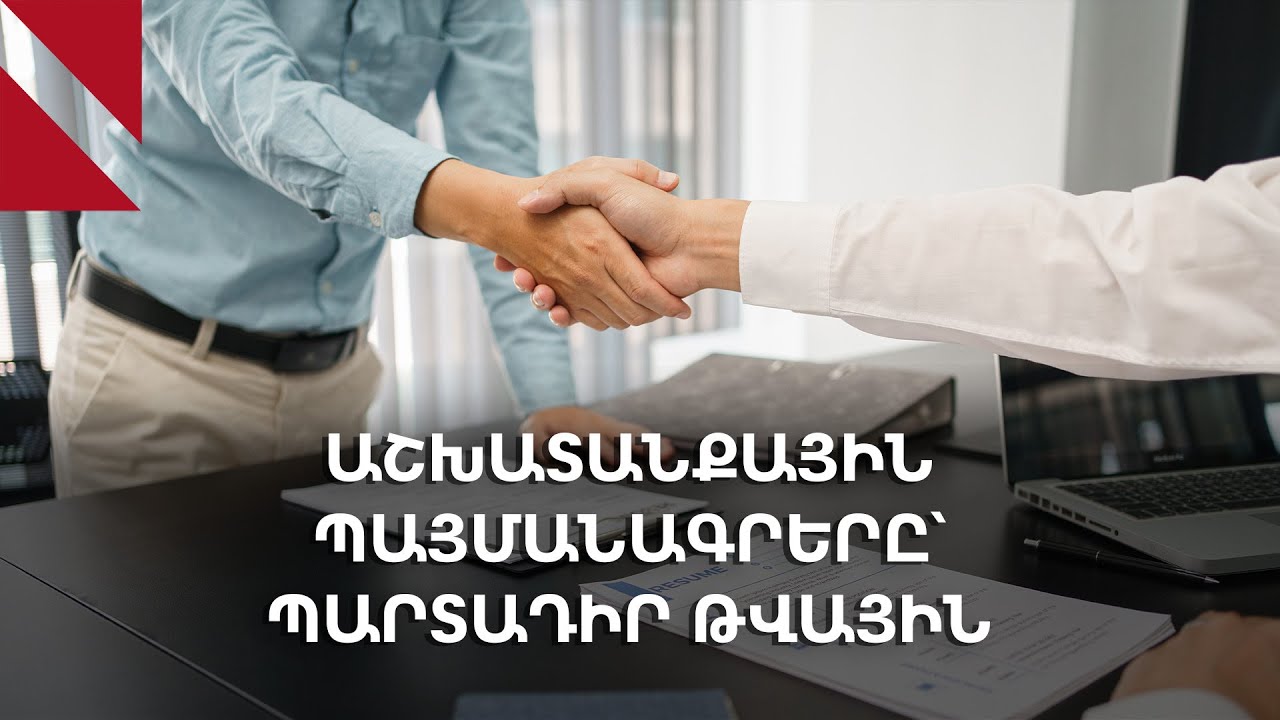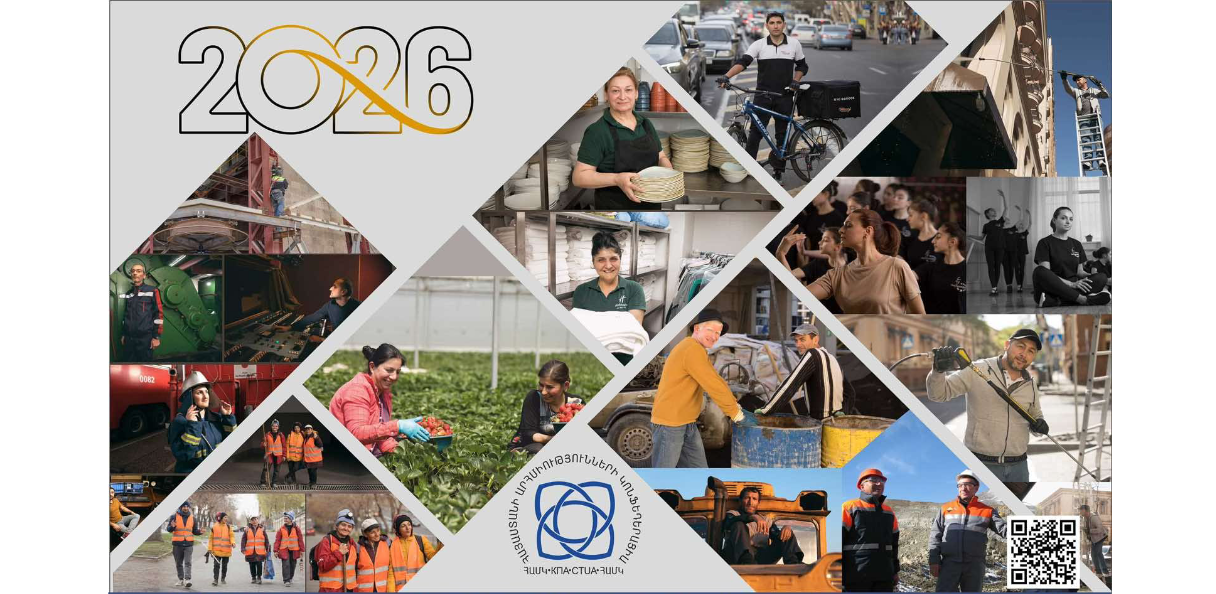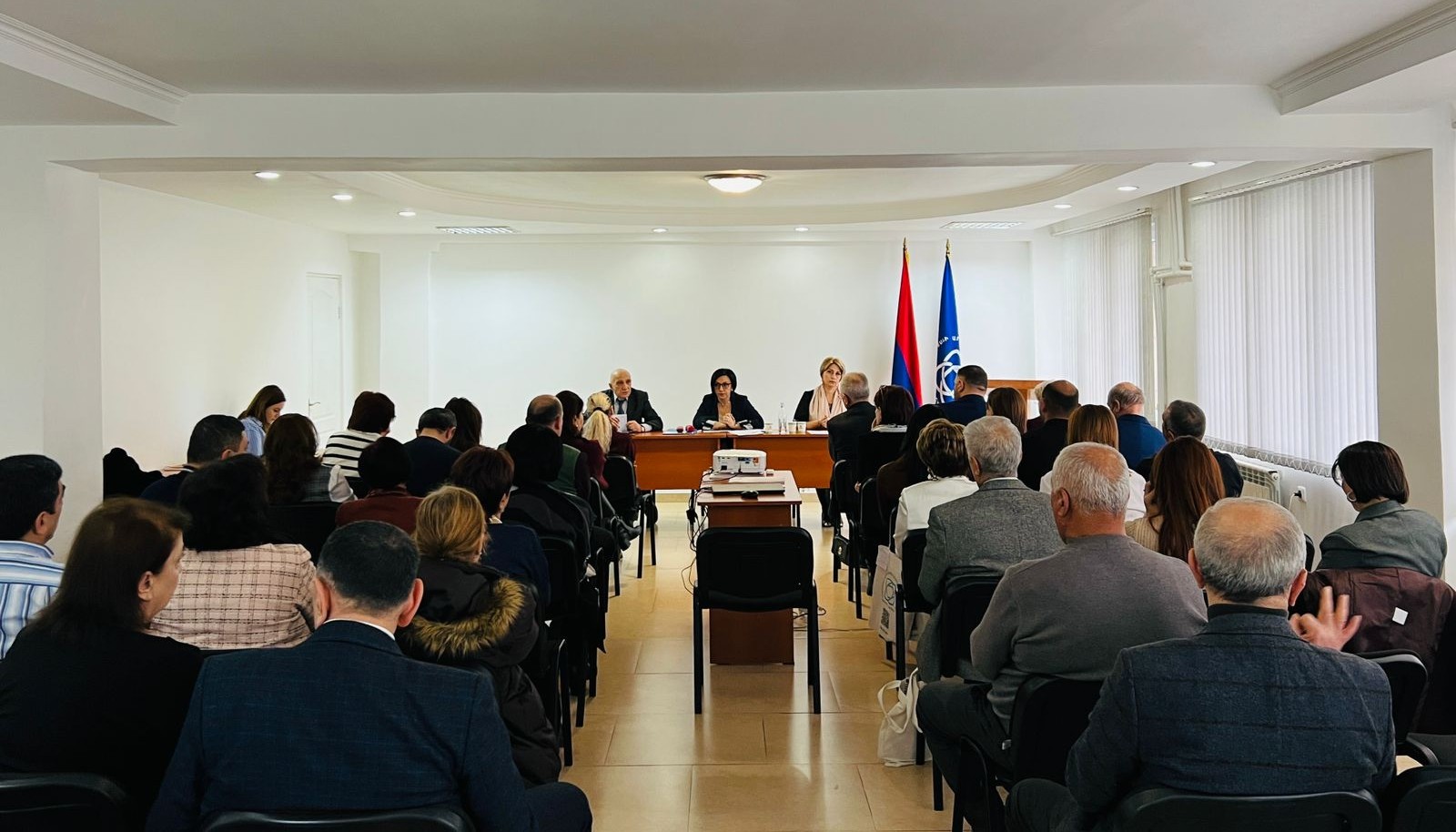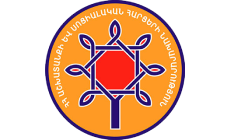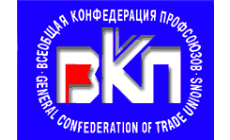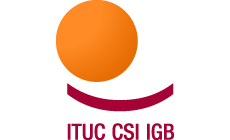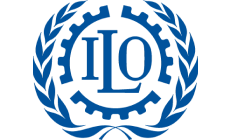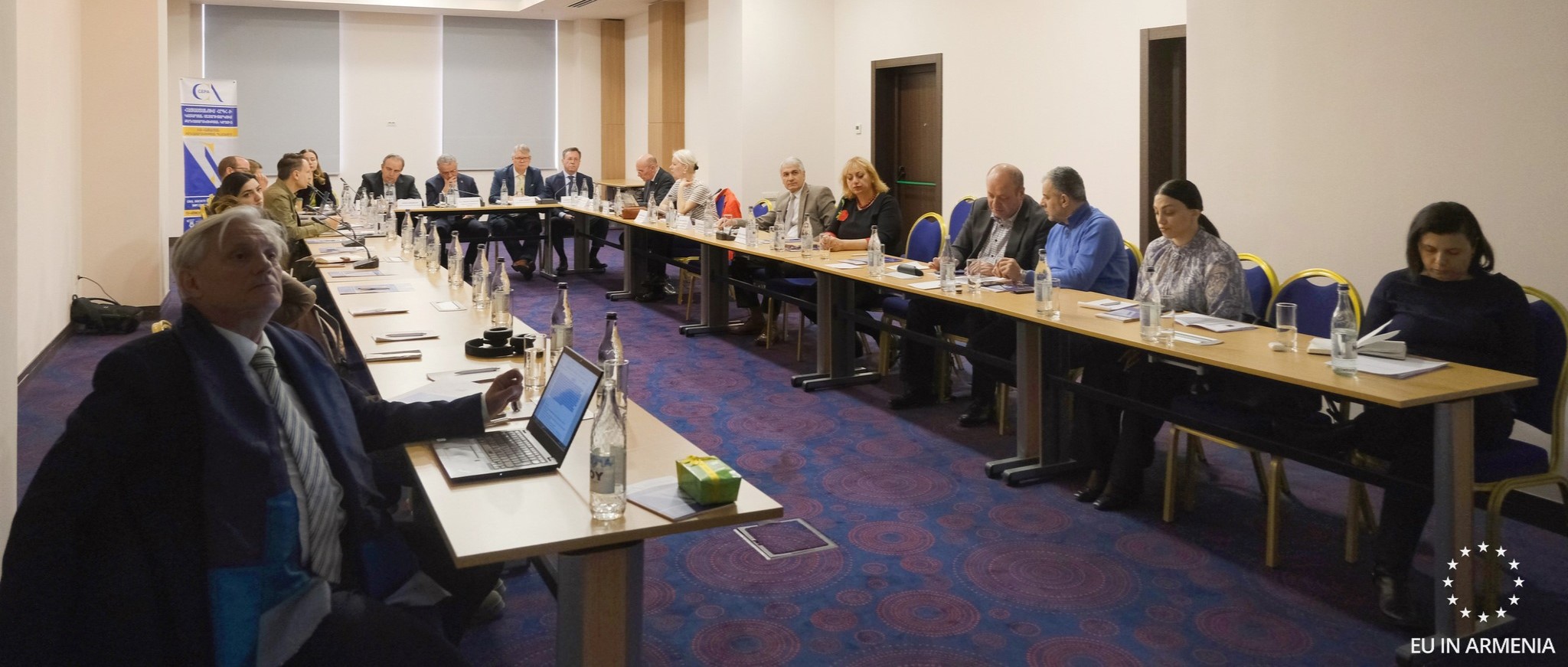
The meeting was attended by EU Ambassador to Armenia Vasilis Maragos, Advisor to the Deputy Prime Minister Karen Nazaryan, and Head of the European Department of the Ministry of Foreign Affairs Samvel Mkrtchyan. S. Mkrtchyan presented the latest information regarding the implementation of CEPA.
During the meeting, the process of implementation of the EU-Armenia Comprehensive and Enhanced Partnership Agreement (CEPA) was discussed. Representatives of the Platform emphasized the need for more effective, tangible and rapid implementation of reforms in parallel with Armenia's European aspirations, noting that the scale of implementation of the CEPA agreement lags significantly in the context of commitments and timelines. An exchange of thoughts took place with representatives of the European Socio-Economic Commission, as well as with Member of the European Parliament Marina Kalurand from the South Caucasus delegation.
The state of democratic institutions and the rule of law in Armenia was also discussed, in particular the progress of reforms in the law enforcement system and their shortcomings. A separate discussion took place on the implementation of CEPA provisions on agriculture and territorial development.
Following the meeting, a joint declaration was adopted. The declaration states, among other things, that:
- Civil society should be more actively involved in the implementation and monitoring of CEPA.
- The government must make more intensive efforts to improve foreign trade with the EU, including in the context of public procurement and international investment.
- Reforms related to government oversight and control in the fields of labor, food, environment and consumer protection must be accelerated, including due implementation of international obligations.
- When introducing comprehensive health insurance, the state should take into account the principles of social solidarity and social justice, and not place its financing solely on the shoulders of workers.
- It is necessary to urgently and effectively take measures to protect RA labor migrants from organized transportation, exploitation in illegal labor relations and living in dangerous conditions, while simultaneously identifying and punishing the representatives of criminal networks involved in this.
- It is necessary to resume dysfunctional social dialogue, guided by international obligations and the principles of democracy.






